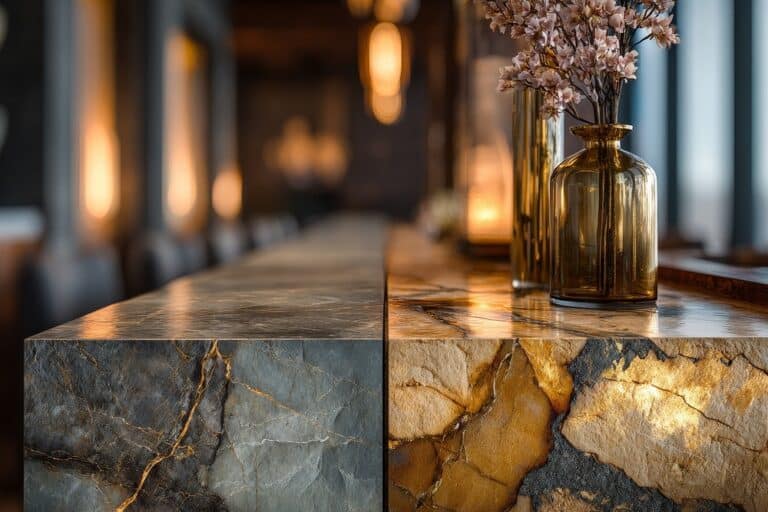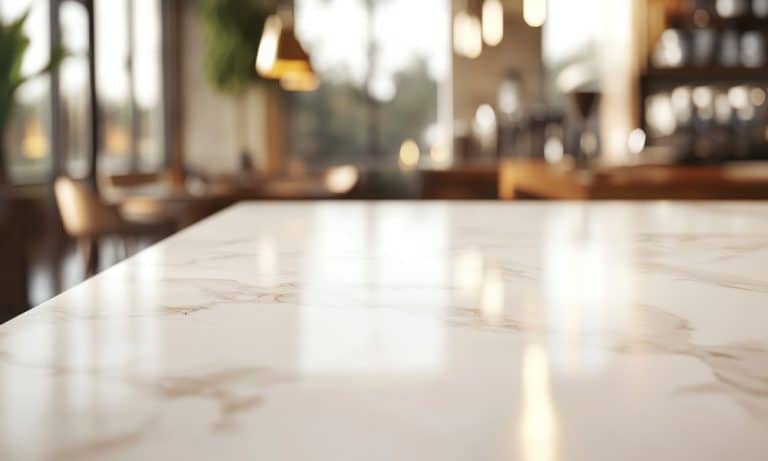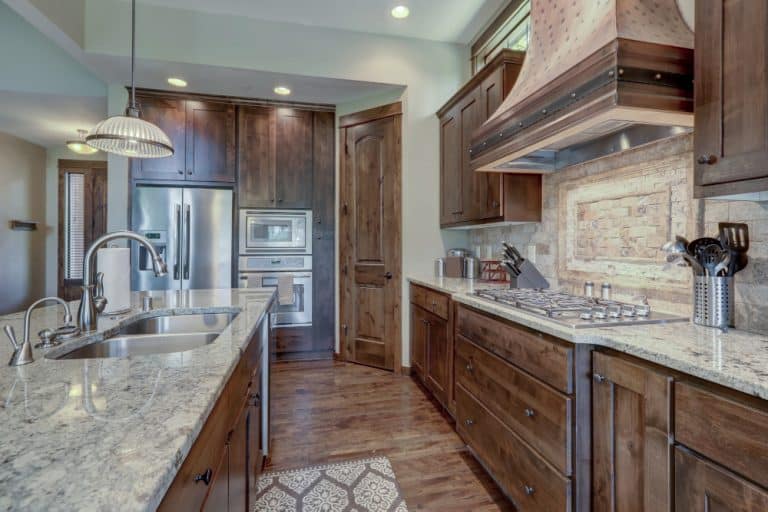Like marble and granite, quartzite is a fantastic material for countertops. It is a material that needs to be sealed to protect it against cuts, scratches, stains, etc. But how often does a quartzite countertop need sealing? Figuring that out is not an exact science. A lot of what goes into the decision depends on how heavily countertops are used.
The general rule for quartzite countertops is once annually. But that rule assumes countertops are not subject to anything more than normal wear and tear on a daily basis. In a kitchen with heavy use, quartzite might need to be resealed every 6-8 months.
What It Does and Why It’s Necessary
Sealing quartzite essentially covers the surface in a protective layer that is more resistant to sharp objects, heat, sunlight, and impact. It is actually very similar to applying a clear coat finish to a car. The clear coat protects the paint underneath which, in turn, protects the bare metal underneath it.
Sealer protects the natural surface of a quartzite countertop. This is not to say that quartzite is otherwise fragile or unsuitable. Nothing could be further from the truth. Quartzite is a very tough and durable material perfect for both kitchen and bath. So then why seal it?
All natural stone materials are porous to some extent. Granted, marble and granite are more porous than quartzite, but quartzite still has its own porosity issues. Without sealer, a quartzite surface will more readily soak up stains. It is also more likely to discolor in response to its exposure to direct sunlight.
What to Look For With Quartzite
Although deciding when to seal quartzite isn’t an exact science, knowing what to look for in your countertops can give you a heads up when it is time to consider resealing. Note that quartzite countertops are sealed immediately after installation. That sets you up for 6-12 months.
Here are some things to look for, things that would indicate the need to seal your countertops again:
- Water Absorption – The biggest sign of the need to reseal is water absorption. Under normal circumstances, sealer causes water to bead. If water isn’t beading, a countertop’s sealer has already lost some of its ability. If water is being absorbed into the stone, the sealer isn’t doing anything at all.
- Stain Susceptibility – A quartz countertop that seems more susceptible to stains is likely a candidate for a new coat of sealer. The current coat is no longer thick enough to prevent stains from soaking into surface pores.
- Discoloration – A quartz countertop might begin to show slight discolorations in areas where the sealer has worn away. Any patches of discoloration can be tested with a drop of water.
- Loss of Luster – Sealer not only protects quartzite countertops, but it also gives them a lustrous shine. Over time, it is normal for quartzite to lose its luster. No worries, the stone isn’t actually decaying. A loss of luster simply indicates that the sealer has worn away.
Countertops that undergo moderate daily usage will probably do just fine with an annual sealing. But those subject to heavier usage tend to need sealing more frequently. A good fallback, should you ever forget what to look for, is to simply seal every year.
Remember that sealing quartz countertops protects them against scratches, cuts, stains, and discoloration. Spending a weekend sealing countertops is worth it when you consider just how beautiful and durable quartzite is. Indeed, it is one of the best stone materials for countertops throughout Utah. We know. We sell and install our fair share of quartzite products. If you’re interested in getting your countertops remodeled by professionals, stop by one of our Utah showrooms.







